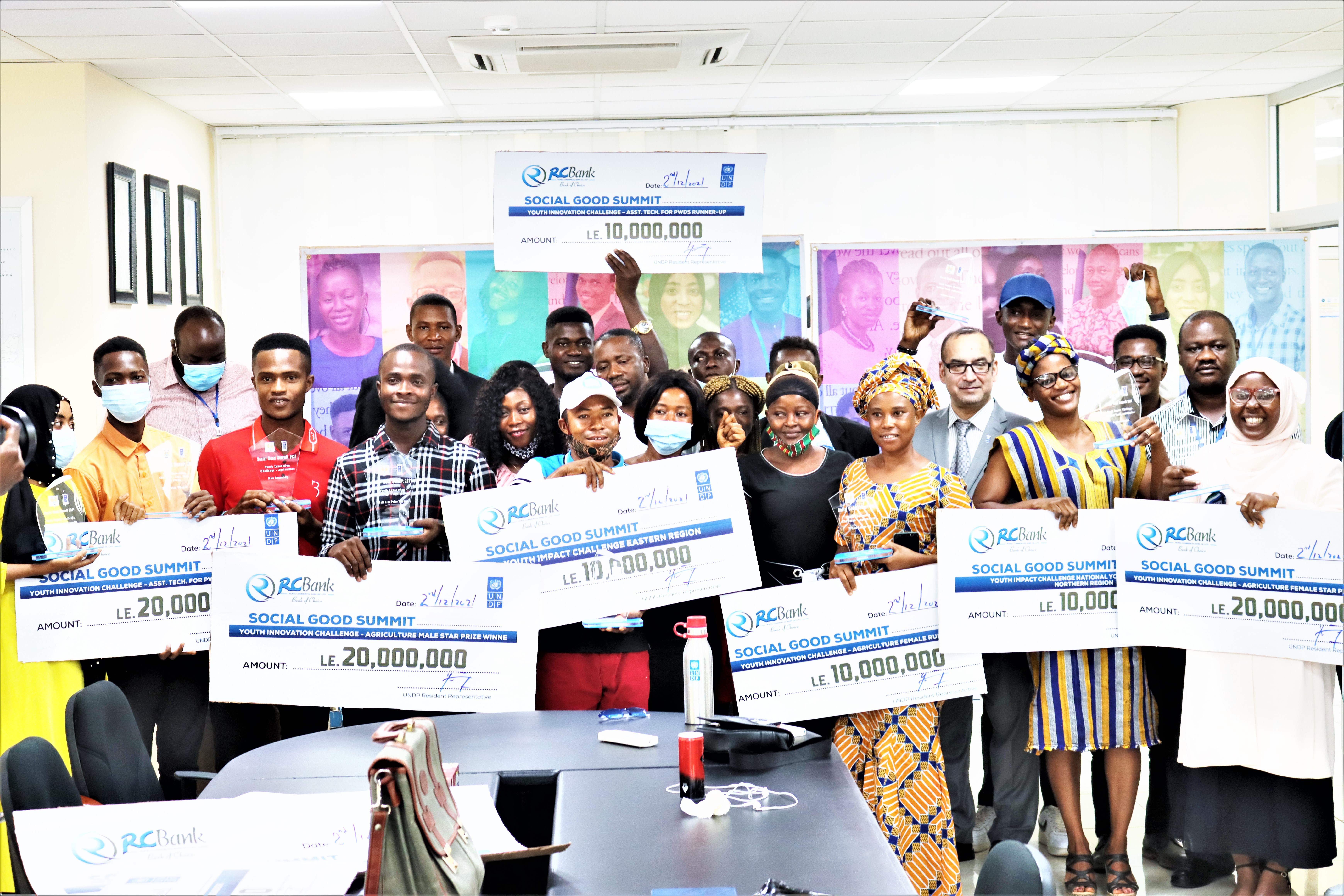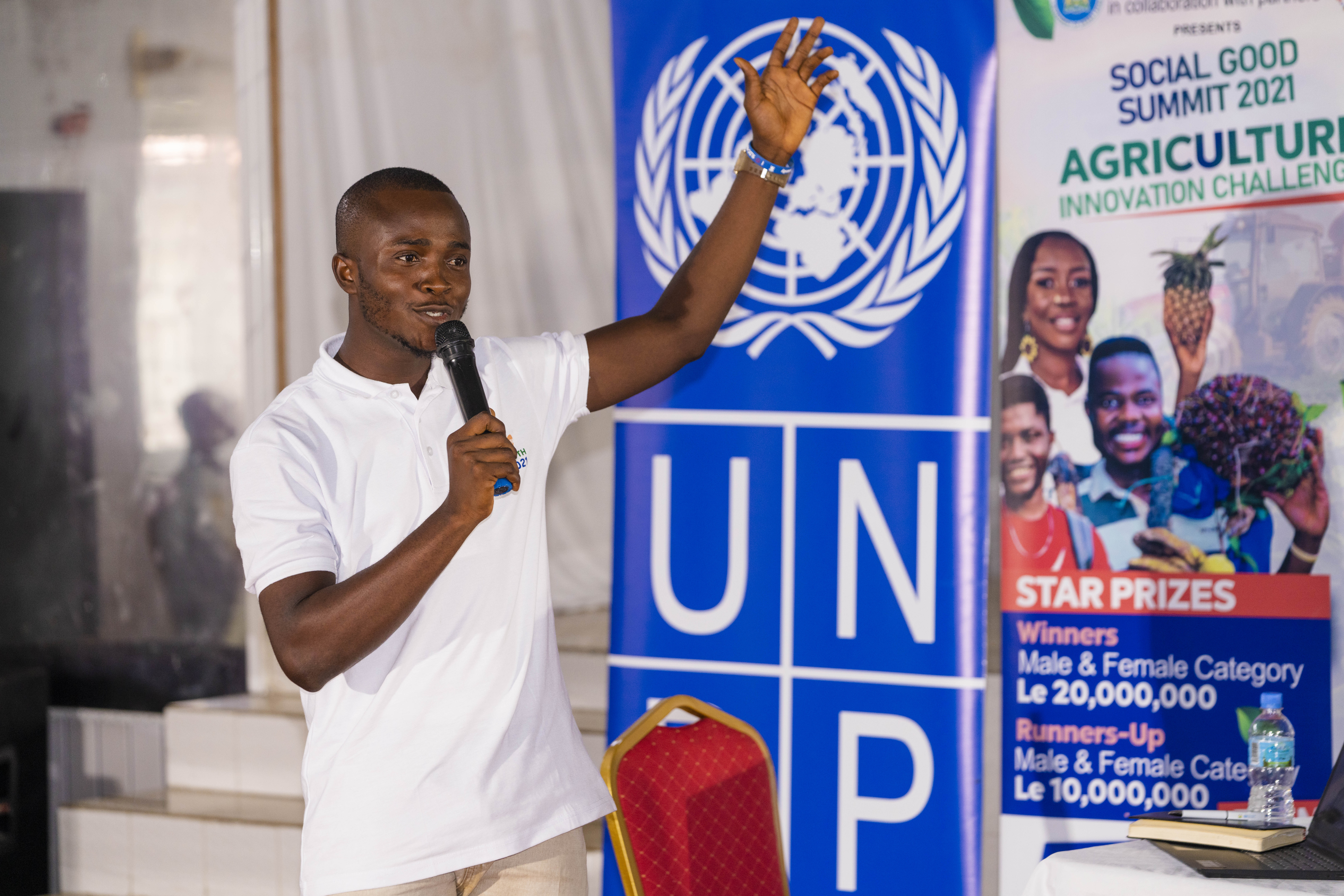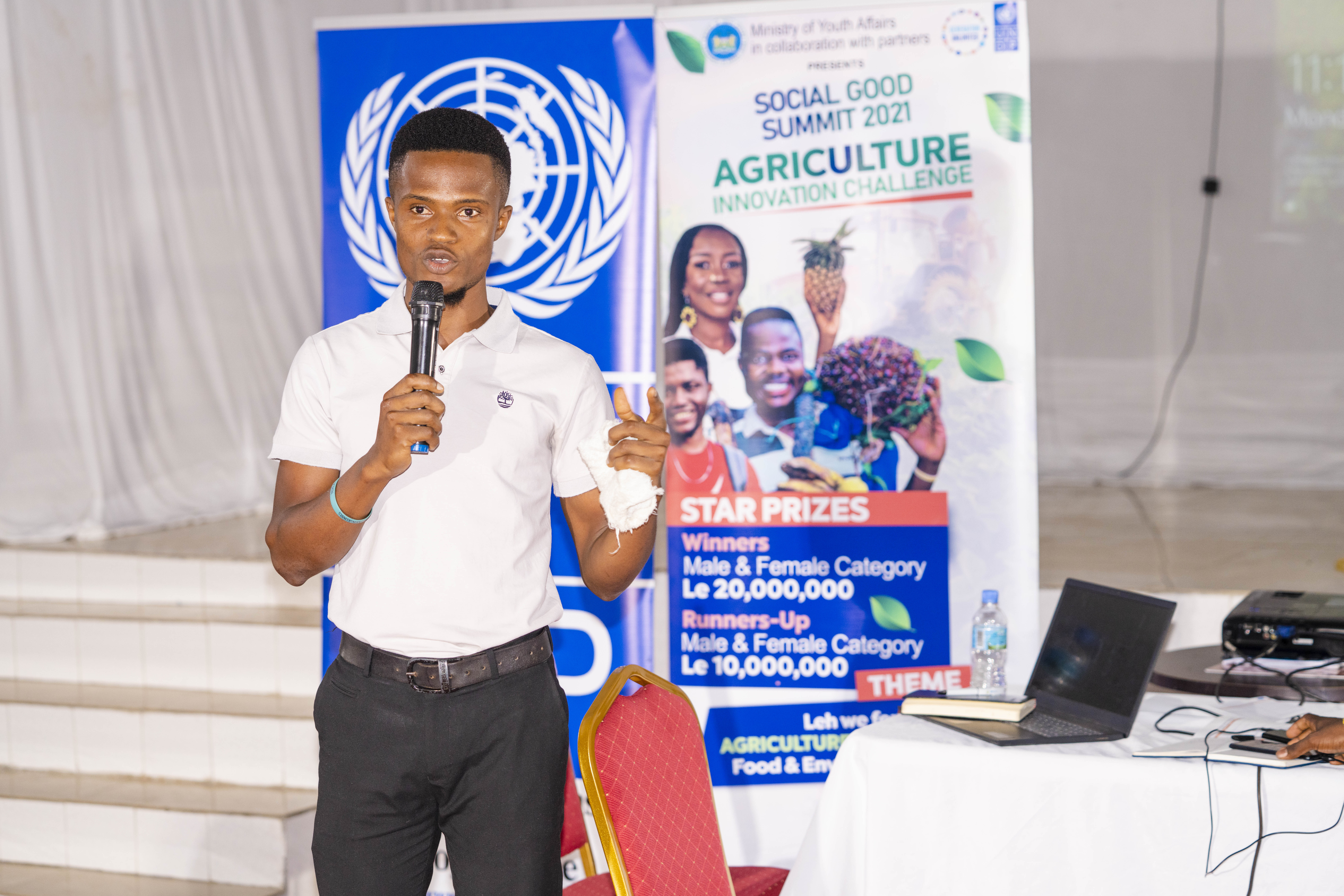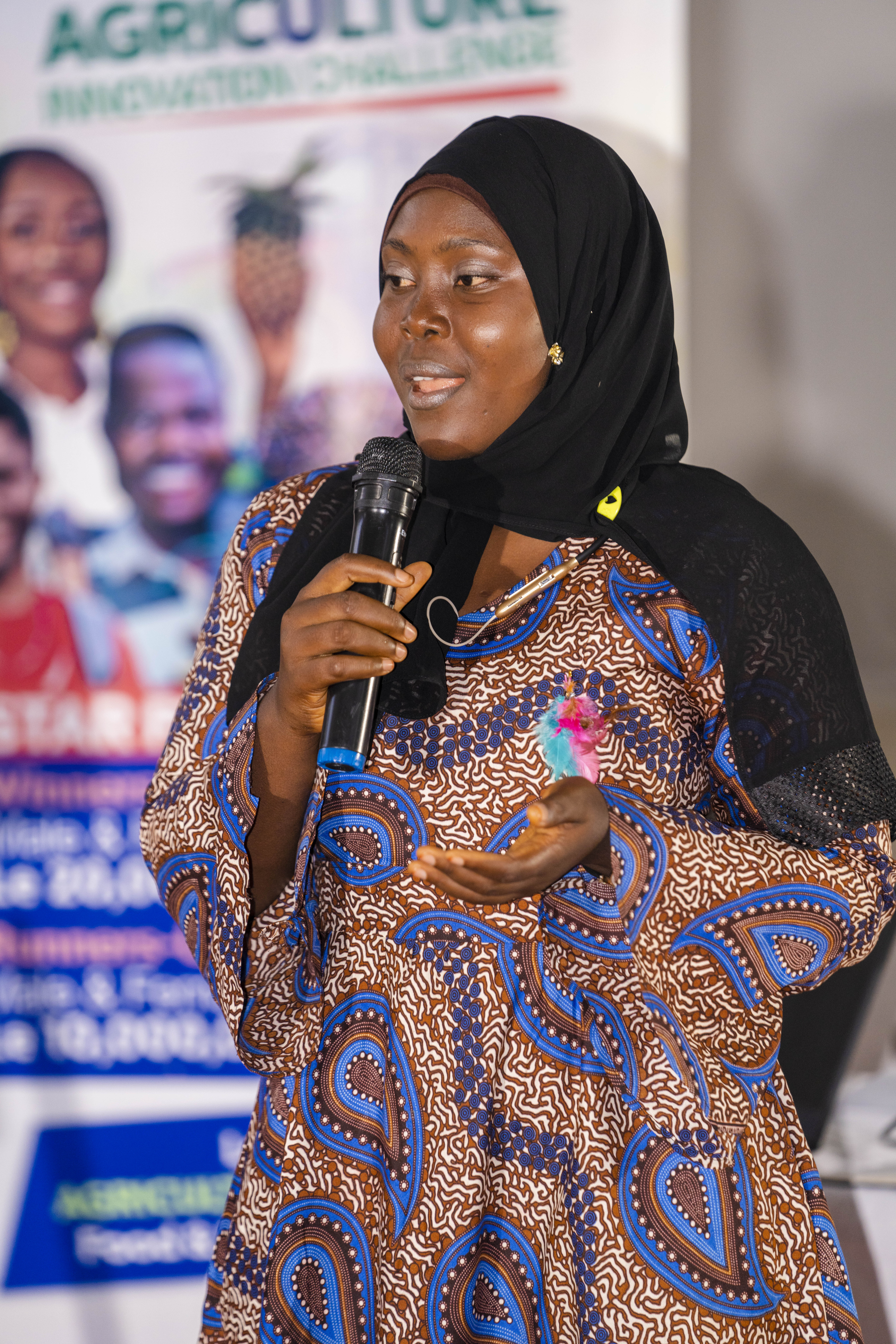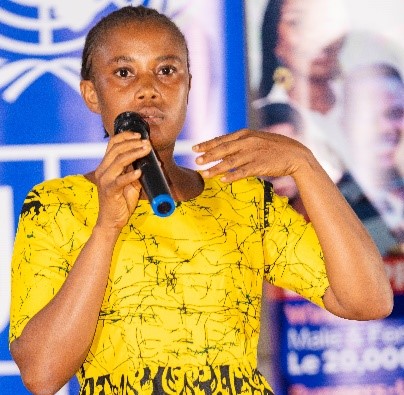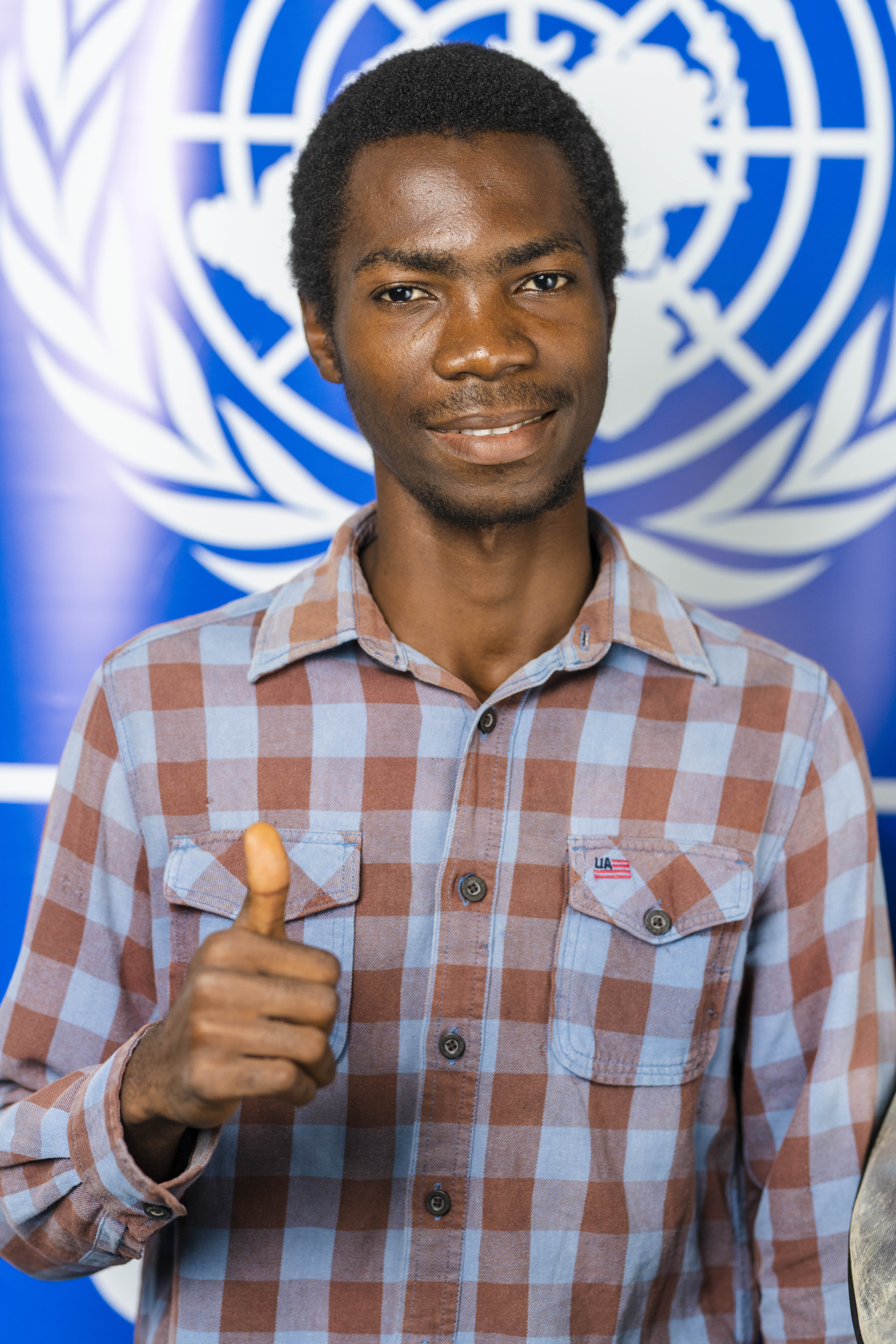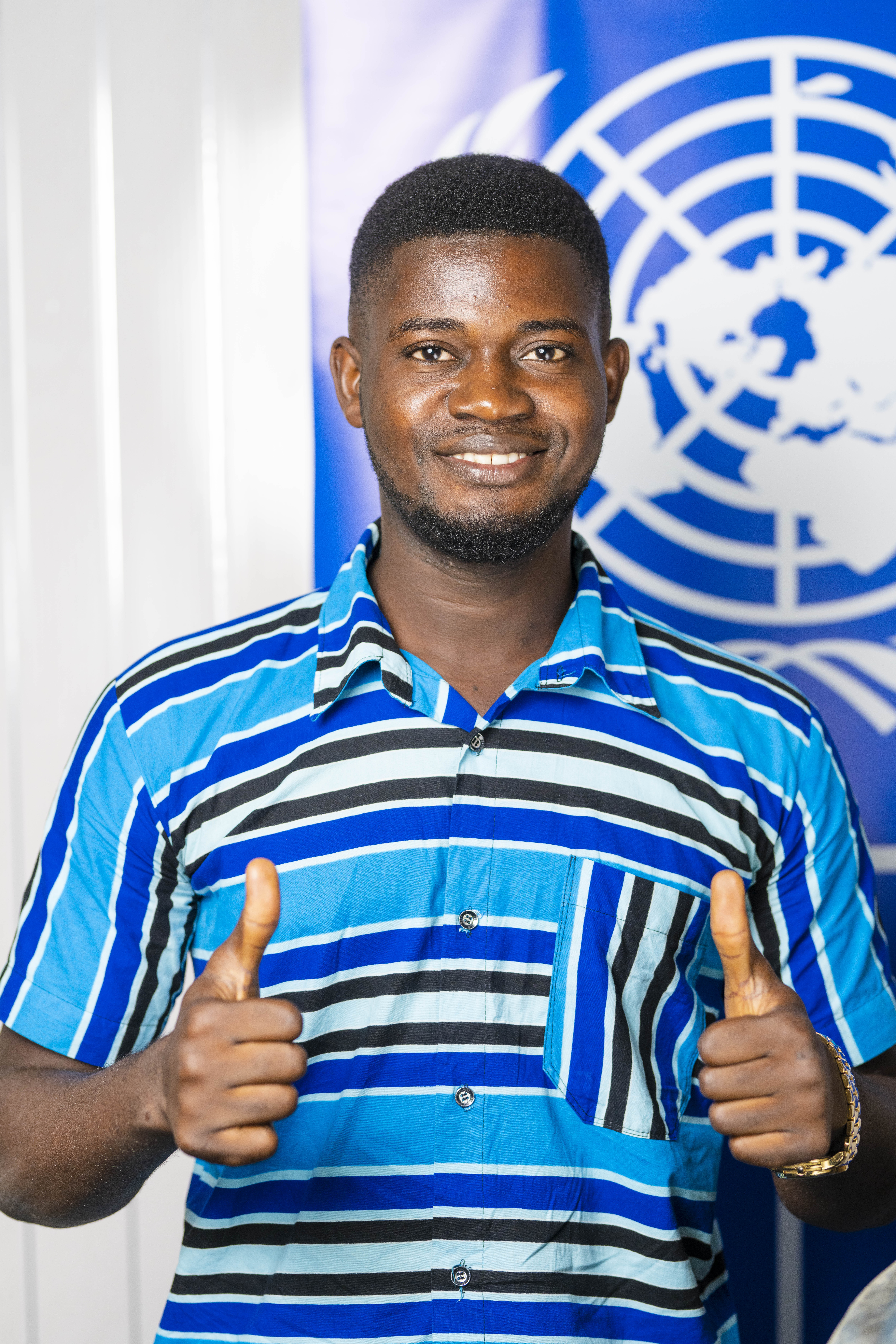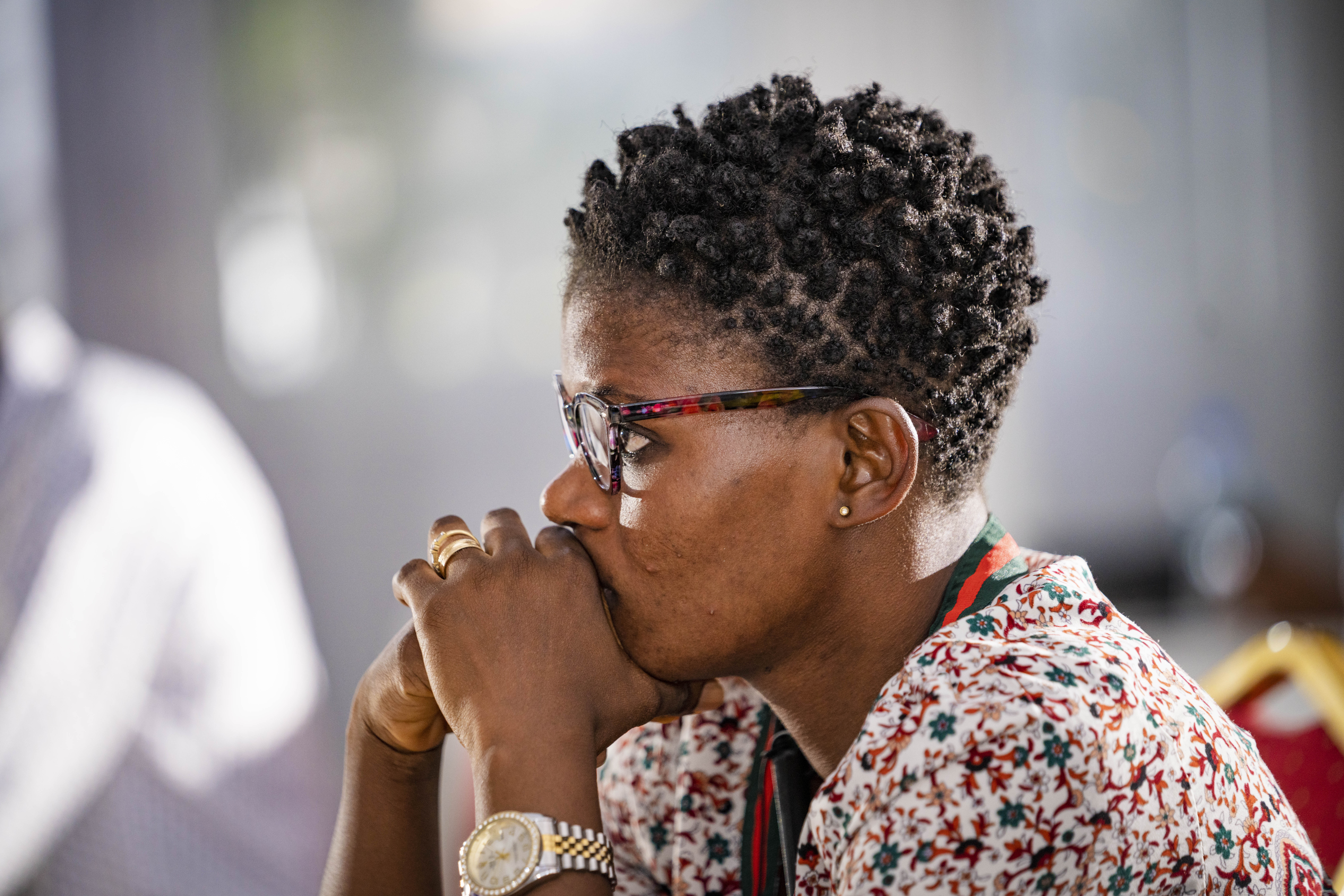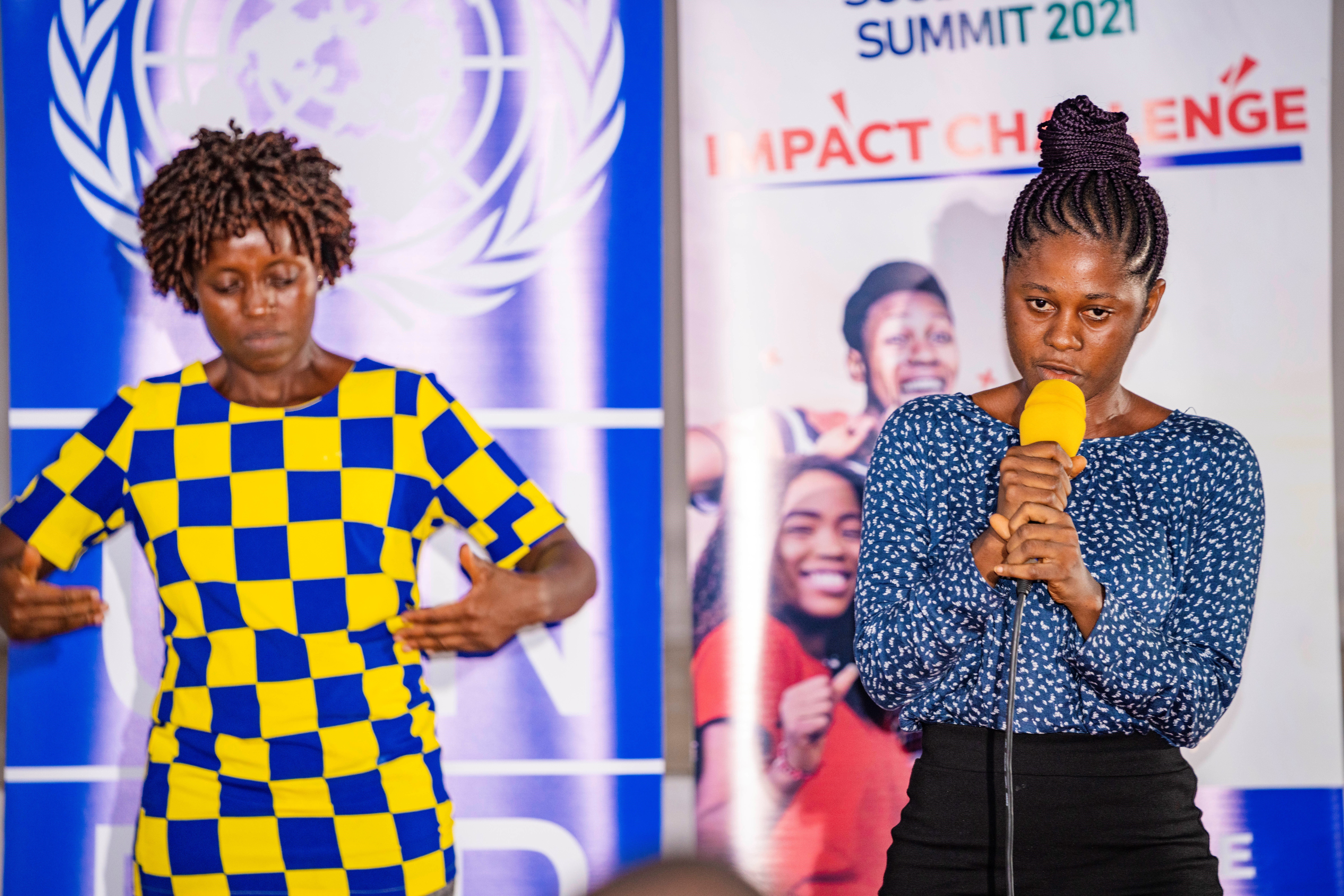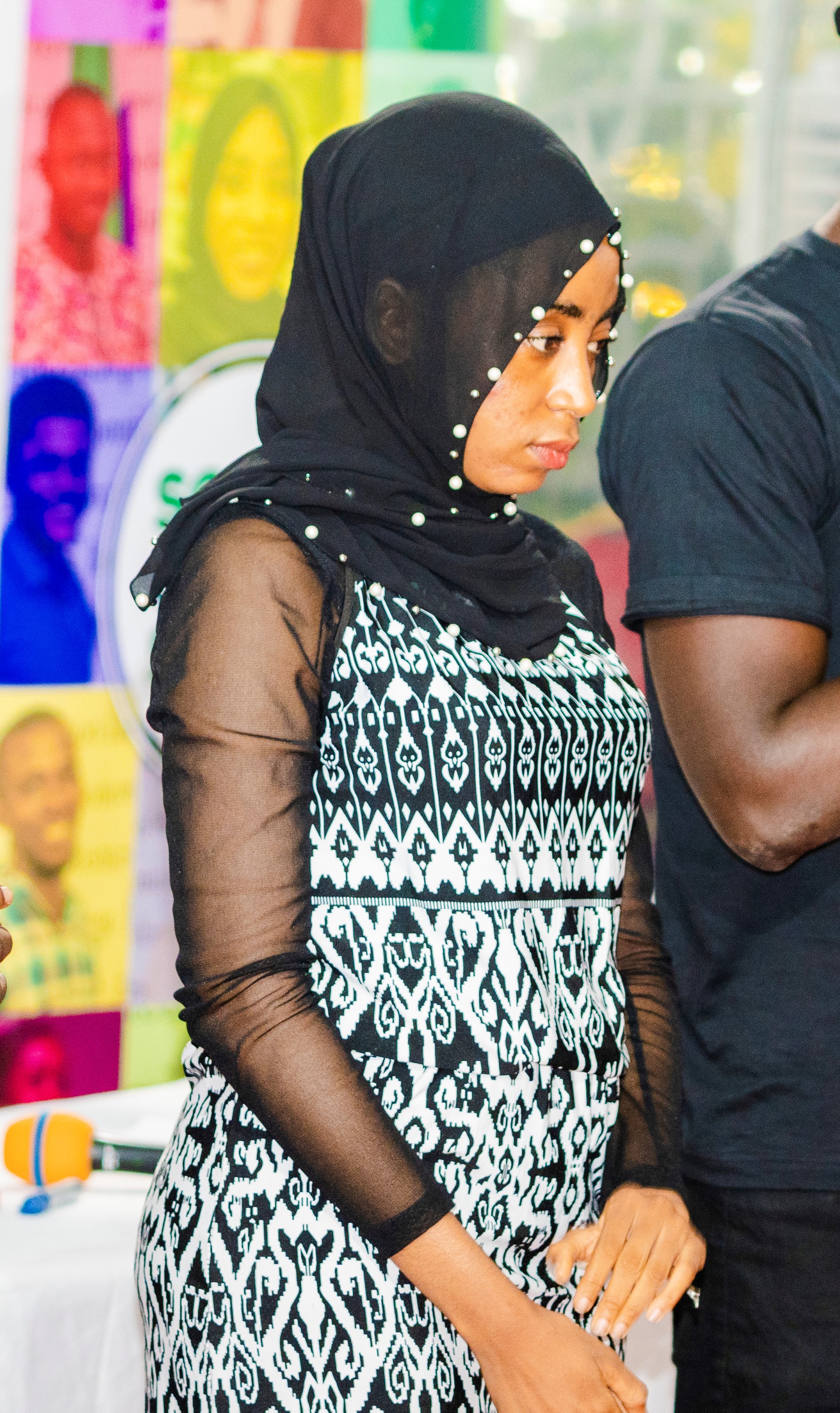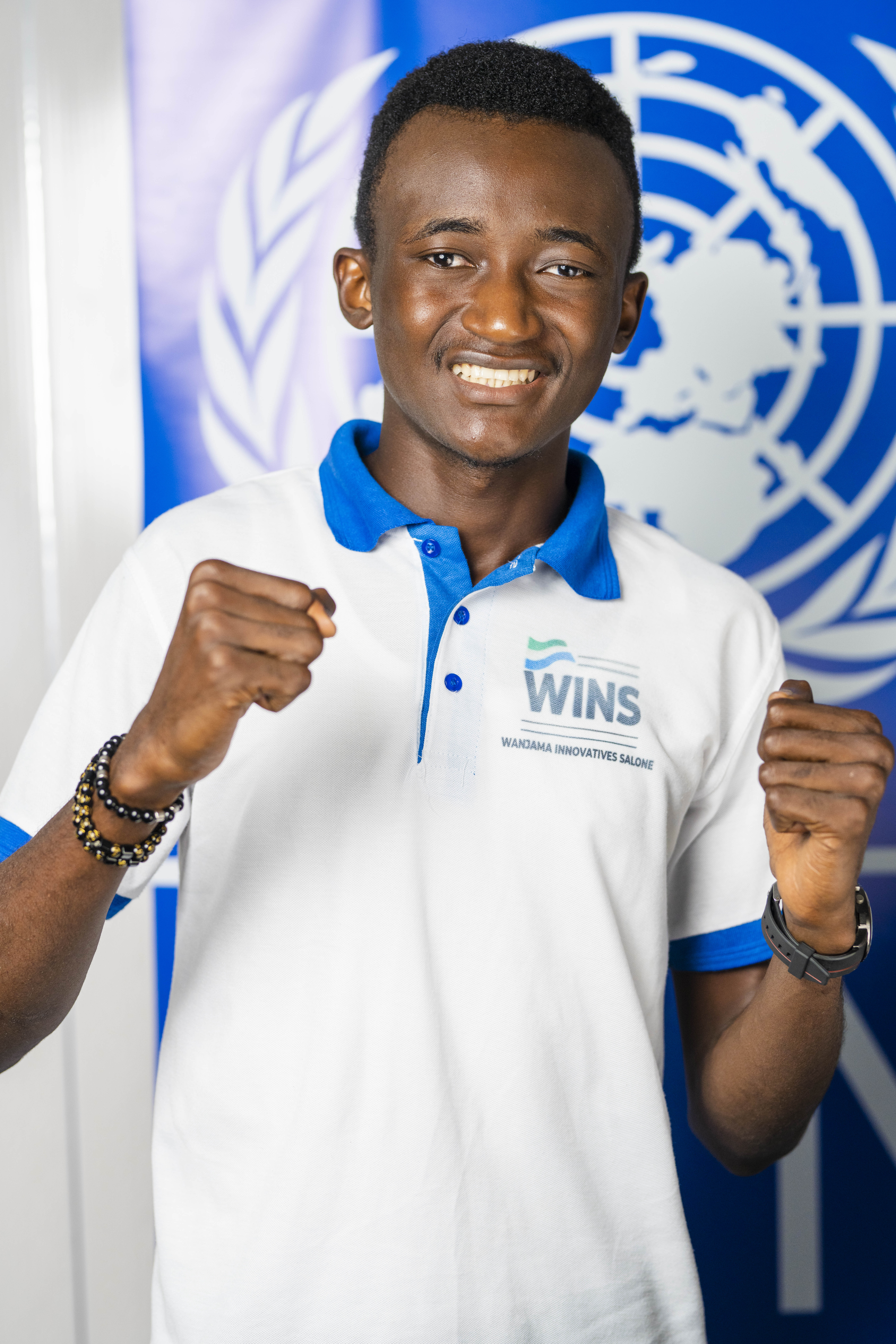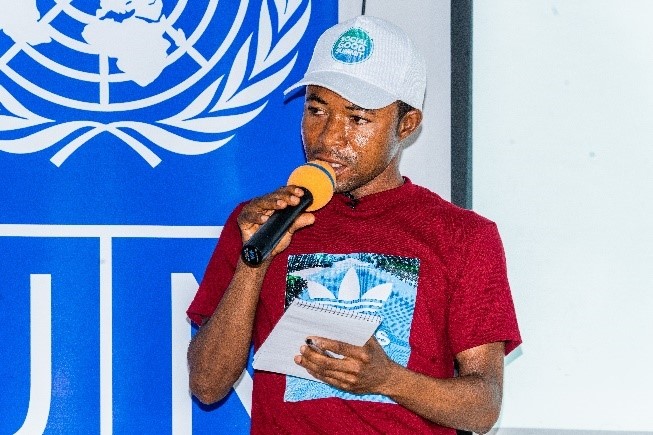For the past eight (8) years, UNDP Sierra Leone, in collaboration with the Government of Sierra Leone through the Ministry of Youth Affairs and other key partners, has been organizing an innovative youth-focused Social Good Summit (SGS) that provides a platform for creative young minds to showcase and articulate innovative ideas that can solve development challenges.
This year’s event is aligned with the Global International Youth Day theme ‘Transforming Food Systems: Youth Innovation for Planetary Health’. This theme couldn’t be better suited to the current situation we find ourselves in the world today with the emergence of the COVID-19 pandemic. This year UNDP has also introduced a new dimension of inclusivity into the competition for young people with solutions for Assistive Technologies, mainly to support people with disabilities (PWDs). This affirms the inclusive nature of the Social Good Summit.
There were three categories of challenges this year:
1. Youth Innovation Competition in Agriculture focuses on innovative solutions to improve agricultural productivity and food systems, while considering the protection of the environment at large. The Awards are gender-based, with a male and female winner and runner-up selected. The winning prize is LE20,000,000, while the runner-up prize (Male and Female categories) is LE10,000,000.
2. Youth Assistive Technologies for People with Disabilities Innovation Competition focuses on solutions that help or enable people living with disabilities to fulfil their potential. There are Winner and Runner-up Award Prizes given. The winning prize of LE20,000,000; Runner-up prize of LE10,000,000.
3. Youth Impact Competition seeks to identify young people doing something in their community that has made a difference and a positive impact on people’s lives. This Award aims to identify five successful young people from each region (North, North-West, South, East & West) who will be granted the title of ‘Youth Ambassadors” for 2021. The winning prize for each Ambassador will be LE10,000,000.
Meet the six winners of the Youth Innovation Competition in Agriculture:
Male Star Prize Winner
1. Benjamin Bockarie (Southern Region)
Benjamin Bockarie’s proposed solution is to institute or establish a country-based fish feed manufacturing factory for the production of local practical fish feed diet, which will improve the investment involvement of entrepreneurs in raising the economic bars of the Green and Blue economy of the country. Specifically, in integrated and multitrophic green aquaculture business, following sciences on technical advance for urban farming as in aquaponics, through the innovative production of self-formulated practical diet for predominantly cultured fish species in the country and Subregions.
Male Runner-Up
2. Yao Aiahson Botton (Eastern Region)
Yao Aiahson Botton’s idea is to produce organic chemical fertilizer from rabbit urine to boost agricultural productivity. This locally produced organic fertilizer will reduce the demand for expensive imported chemical fertilizer.
Female Star Prize Winner
3. Aminata B.K. Suma (Western Area)
Aminata B.K. Suma’s innovative solution is producing, packaging, branding, and marketing dry odourless cassava flour (for fufu) in Sierra Leone. Currently, fufu produced in Sierra Leone is in wet form with 40-50% moisture. As a result, it has a very distinct odour, high starch content, and a very short shelf life. Her product is rich in protein, carbohydrates, and vitamins that are good for children, young people, and adults. This solution seeks to address the problem of hunger, ending poverty, and promote good health and well-being.
Female Runner-Up
4. Susan S. Sesay (Northern Region)
Susan S. Sesay’s proposed solutions are to produce fresh, nutritious juice, pasteurized juice, and jam using our local fruits and vegetables and create meaningful employment for young women in the process. This will also reduce the wastage of seasonal fruits and vegetables in our communities. The reason for this solution is that agriculture and rural development are two of the best available driving forces for eliminating hunger and poverty and addressing the negative socio-economic effect of the COVID-19 pandemic. Additionally, this proposed solution would be to engage more youth and women in the agriculture and food system, which will reduce rural-urban migration and stop illegal and distressful international migration in search of a decent standard of living.
The two prize winners of the Youth Assistive Technologies for People with Disabilities Innovation Competition:
Star Prize Winner
1. Emmanuel Saati
Emmanuel Saati’s innovation Smart Blind Stick provides blind people with detection and localization of objects to offer those people a sense of the external environment using functions of sensors. The sensors also aid the user with the mobility task based on the objects' dimensions, range, and height. The assistant technology provides fast processing for the exchanged information between a blind person and sensors. For example, the system can detect the obstacle that is 4m in front of a blind person in 30sec.
Runner-Up
2. Emmanuel A. Mansaray
Emmanuel A. Mansaray has created an easy-to-use prosthetic leg for disabled people. The prosthetic leg is made using recycled waste materials, like plastic waste. Most disabled people in Sierra Leone are not using proper prosthetic limbs, which makes their movement restricted and dependent on others to assist them. Furthermore, the availability of prosthetics in Sierra Leone is limited, and they are costly to import from other countries. With this solution, people with disabilities can live an independent life, with better mobility to go places such as school and office. People in rural areas can also go to the farm to work, be empowered, and earn money.
The five winners of the Youth Impact Competition:
1. Zion Zainab Kate Smith (Northern Region)
Zion Zainab Kate Smith’s community intervention focuses on education and empowerment programmes for single parents, girls in schools, and youths. She has been engaging over 2,000 pupils in secondary schools to create and increase awareness about their academic and social activities, thus minimizing their chance of school dropout and increasing their likelihood of academic excellence. She conducts her awareness-raising campaigns through school assembly talk shows, float parades, and organizing quiz and debate competitions
2. Adama Sesay (Port Loko District, North Western Region)
The prevalence of teenage pregnancy in the Port Loko district has become a concern and has drawn considerable attention. Adama Sesay formed a community-based organization called Collective Women Network for Girls and Women Empowerment to minimize this problem. Since its establishment, the organization has mobilized community effort through lobby and advocacy, dialogue, mentorship, and coaching to change the negative perceptions of community dwellers towards girls through Adama's action. The organization has also provided formal and informal training to girls, young women, men, and community stakeholders to influence change at a grassroots level. The organization has trained over 100 participants in 2021, most of whom are girls and young women.
3. Bilkissu Jalloh (Western Area)
A talented young woman with a passion for influencing positive change among children, especially girls and youths. She established a community-based organization called Bilkissu Foundation in 2019 and has since been working in three deprived communities in the Western Area, namely Songo Mamara, Susan’s Bay, and Regent communities. The foundation is currently constructing a school in the Songo Mamara community to benefit 300 pupils. Since its establishment, the foundation has been into distributing teaching and learning materials to schools and providing food items to kids in schools to ensure high retention. Her foundation provides capacity building and mentorship to youth as well.
4. James Samba (Southern Region)
James Samba observed that 90% of pupils in Pujehun district, in the southern province of Sierra Leone, are deprived and unprivileged- with zero and no access to electricity to enhance their study at home in the night.
With an Innovative response to this problem, James Samba and his innovative hub, Wanjama Innovate-s (unregistered), produced and freely distributed Free Integrated Solar Backpacks to over 50 disadvantaged pupils in schools and communities around the Pujehun District.
The backpack and its integrated solar lighting system are durable, sustainable, and environmentally friendly; - hence, it generates its power from a green energy source. The backpack was made from recycled materials.
The backpack allows children in rural areas to leverage the sun's power during their long walks to and from school to provide light for reading at night. Each bag consists of a solar panel, a battery pack, and a LED lamp. For four hours of charging, the backpack can give out seven to eight hours of light at night
5. Alhaji Yayah Swaray (Eastern Region)
Alhaji Yayah Swaray is from Kenema city, the eastern region of Sierra Leone. He established a community youth-based organization called Young Entrepreneurship Community Advocacy Network (YECAN) that empowers youth between ages 18-35 through car washing projects by providing car wash machines in crime-prone communities.
He conducted a need assessment survey among youths in Kenema in 2019. The survey result shows that there is a high youth unemployment rate and youth priority was in car washing as a livelihood.
He established three car wash centers in three locations and purchased car washing machines for youths in three crime-prone communities in Kenema city. Three washing centers have been established through his initiative, with over 60 young people employed daily. Most employed youths have opened saving accounts and are saving approximately 100,000 daily.
Thanks to the Ministry of Youths Affairs (MoYA), the National Youth Commission (NAYCOM), and the National Youth Service (NYS) for advancing the youth agenda in Sierra Leone.

 Locations
Locations